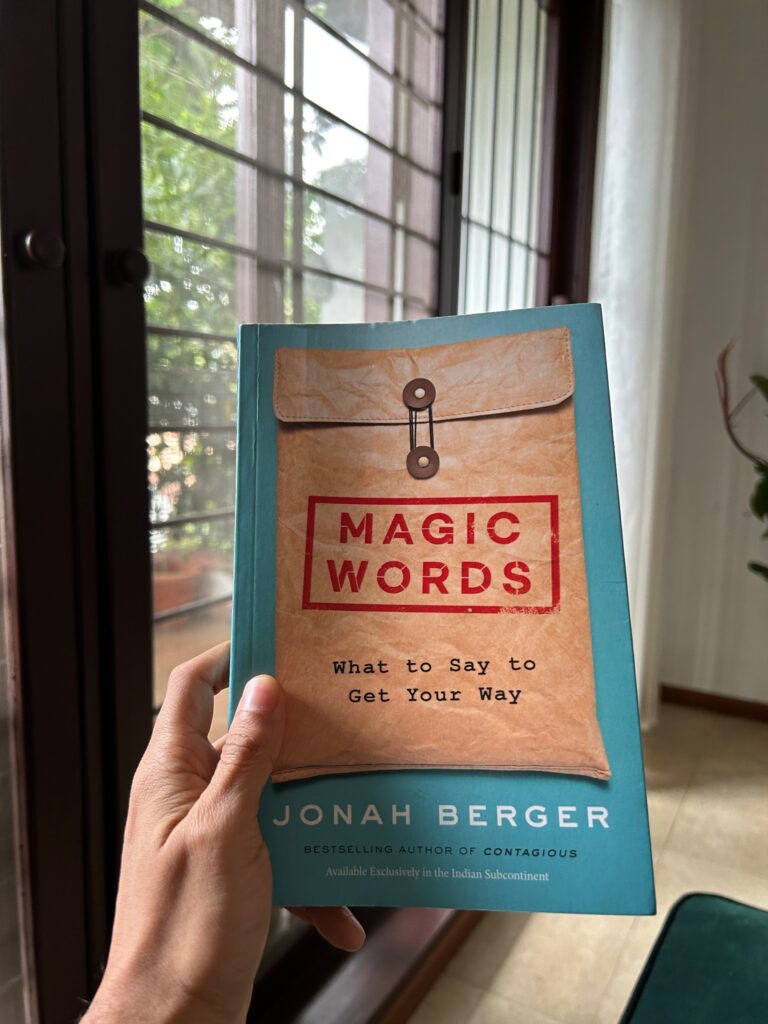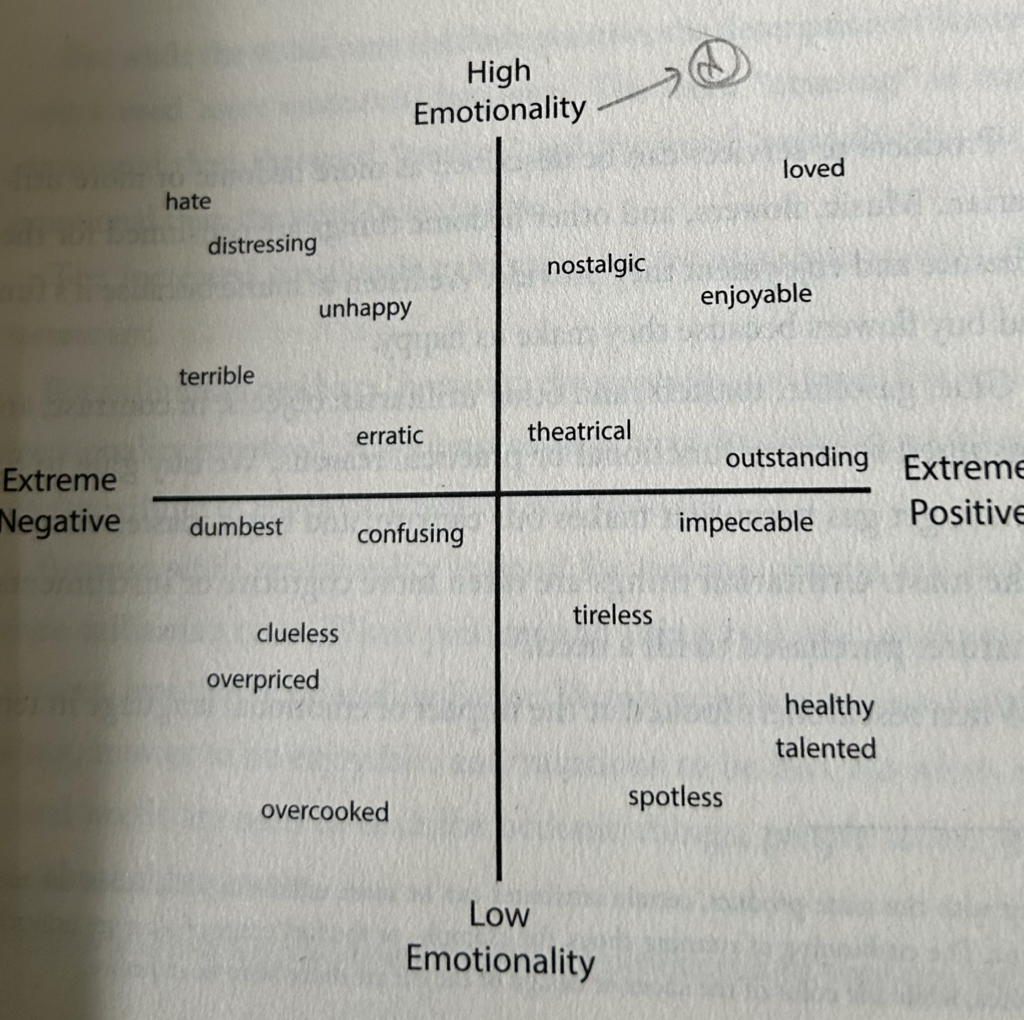Just finished reading Magic Words by Jonah Berger and my notes follow.

1/ Most of us spend a significant amount of time in assembling the thoughts we want to convey, but assume the words to convey them as a given.
2/ This book – written by a professor of business – takes the view that the specific words we choose to communicate have an enormous impact on the listener.
3/ Since words paint an image in the listener’s head, the same idea presented differently can paint a very different image.
4/ For example, words that make people reflect on their identity are powerful. Asking someone “are you hardworking” instead of “do you work hard” makes a lot of difference because while the former is about their identity, the latter is just an attribute.
5/ To get someone to act, use words that make people reflect on their identity. For example, complimenting someone as diligent is much better than saying their work is comprehensive.
6/ This goes even for oneself: telling to yourself that you can’t do something externalizes the reason, but saying you don’t do it internalizes it. (So always say: “I don’t eat sweets”, instead of saying “I can’t eat sweets”)
7/ Words that convey confidence work way better than words that suggest hesitation. Donald Trump mastered it when he’d openly declare that there is no better deal maker than him and that people should believe him 100%.
8/ Putting aside the ethics of bending the truth, it is evident that the surgeon who assures her patients that there are ZERO chances of anything going wrong will always have more patients than the one who says it’s rare, but things can go wrong.
9/ Asking the right questions also plays a big part in making people like you. Questions indicate that you’re paying attention and value the listener’s intelligence. I recall a study where people who asked questions intermittently were rated as more intelligent than people who kept talking.
10/ Questions can also work wonderfully in deflecting uncomfortable topics. If someone asks you an uncomfortable question like “how much money you make?”, instead of revealing the answer or saying no straightforwardly, it might be prudent to deflect it by asking a related question back to the other person (such as “how much money do you think I make?”, or “do you think I make more or less money than you?”). This puts the focus back on someone who is asking you an uncomfortable question.
11/ Conversely, if you want to find out the truth, simply ask a direct question because most people are bad at deflection. So, when buying a house or a car, instead of asking “I hope everything is okay with this thing?”, ask “when is the last time this caused problems?”, or “how many complaints did you get about this last month?”
12/ When should you be concrete, v/s when you should be abstract? It depends.
When we have to paint a vivid picture of something (such as describing a new product), being concrete helps. Instead of saying “it’s a red T-shirt”, saying “it’s a beautiful, M-sized red T-shirt with white stripes, made of 100% cotton” will lead to more people buying the shirt.
13/ However, when you have to paint a grand vision (such as pitching your company for funding), being concrete hurts, and you should go abstract. Instead of saying that you’re making a to-do app, tell people that you’re changing how the world organizes information.
14/ Emotion-laden words are always more powerful than non-emotional words. Even for the same valence, some words are more emotional than others. For example, saying you ate a mouth-watering meal is always more persuasive than saying you ate a good meal.

15/ We often tend to use less emotional words simply because we’re not paying attention to the particulars of an experience. If we’re more mindful, to use more concrete words to convey our thoughts and feelings. How can you say a dish was mouthwatering if you ate it in a hurry in front of the TV?
16/ Finally, when it comes to evoking emotions, nothing beats a good story. So it pays to learn what makes a good story (something I’m planning to write about soon, and you should subscribe to receive that essay when it is published).
Also, don’t forget that a good story has ups and downs (not just ups), so showing vulnerability and mixing wins/shortcomings always helps instead of just focusing on wins.
17/ Plus, of course, a good storyteller can convince you of anything. I’m 100% sure of that.
18/ Summarizing the advice in one line: to persuade, be concrete and confident, but tell a story, not facts.
Join 200k followers
Follow @paraschopra